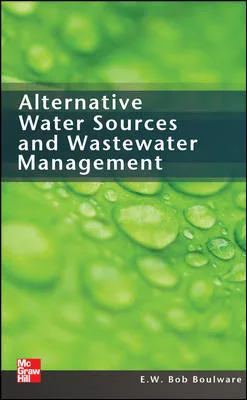Safe Drinking Water Grants Awarded By EPA
Each year in the United States there are cases of gastrointestinal illnesses associated with drinking water. These grants are aimed to provide faster and more sensitive tests for local drinking water facilities to use in detecting pathogens.
Each year in the United States, there are cases of gastrointestinal illnesses associated with drinking water. Ten universities recently received grants from the U.S. Environmental Protection Agency totalling $5 million for research to develop better methods for detecting harmful organisms in drinking water, including viruses, bacteria and protozoa. The grants, awarded through the EPA's Science to Achieve Results (STAR) research grants program, are aimed at ensuring that the United States has the safest drinking water in the world. Tufts
University (North Grafton,
Mass.): A $600,000 grant for a rapid (less than four hours) method for detection of
disease-causing organisms by drinking water facilities.
University
of Arizona (Tucson,
Ariz.): A $466,817 grant to develop a nanotechnology application for the rapid and economic concentration
of gastrointestinal viruses, parasites, and bacteria.
Metropolitan
Water District of Southern California (La
Verne,
Calif.): A $600,000 grant to study the use of molecular biology to extract nucleic acids from waterborne
organisms, allowing facilities to detect a broad range of potential
disease-causing organisms.
Michigan
State
University (East
Lansing,
Mich.): Two grants -- 1) a $600,000 grant for a new method that can simultaneously detect 20 waterborne pathogens in
source and drinking water; 2) another $600,000 to develop a real-time tool to determine whether drinking water contains bacterial
contaminants.
University
of Washington (Seattle): A $597,987 grant for a rapid, sensitive method to detect and measure known and emerging
pathogens.
Johns
Hopkins Bloomberg School of Public Health (Baltimore): A $600,000 grant to develop a new method
to improve measurement of viruses and protozoa in drinking water, that could
replace the current reliance on bacterial indicators only.
University
of California (Riverside,
Calif.): A $600,000 grant for a real-time method to detect and measure intestinal viruses in drinking
water.
Drexel
University (Philadelphia): A $566,714 grant to develop sensors that can detect pathogens such as cryptosporidium without a
concentration or filtration step.
University
of North Carolina (Chapel Hill, N.C.): A $600,000 grant for a real-time tool to detect
multiple classes of microbial pathogens.
Each year in the United States, there are cases of gastrointestinal illnesses associated with drinking water. Ten universities recently received grants from the U.S. Environmental Protection Agency totalling $5 million for research to develop better methods for detecting harmful organisms in drinking water, including viruses, bacteria and protozoa. The grants, awarded through the EPA's Science to Achieve Results (STAR) research grants program, are aimed at ensuring that the United States has the safest drinking water in the world.
The grants were awarded to the following universities:
Links
Looking for a reprint of this article?
From high-res PDFs to custom plaques, order your copy today!







